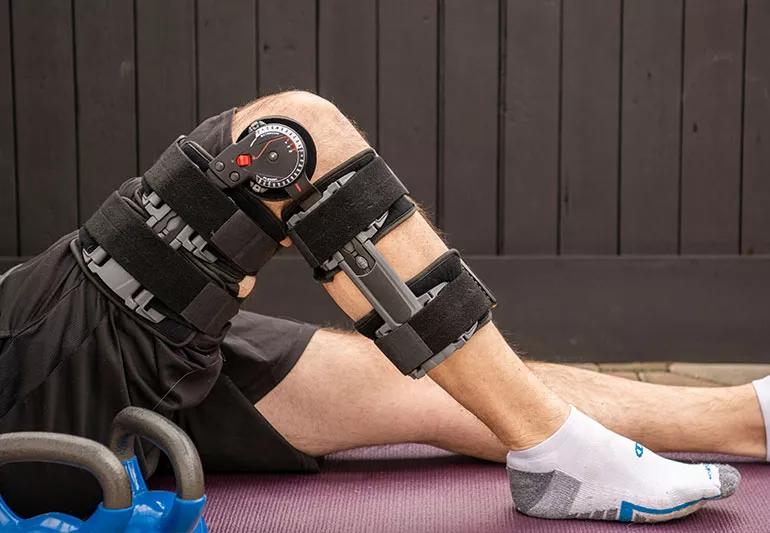Advertisement
Sports medicine physicians can get you back on track

Whether you’re a weekend warrior, competitive athlete, regular recreational exerciser or simply an active individual, you know a nagging tendonitis or skin infection can halt you in your tracks.
Advertisement
Cleveland Clinic is a non-profit academic medical center. Advertising on our site helps support our mission. We do not endorse non-Cleveland Clinic products or services. Policy
That’s where sports medicine physicians step in.
“If an injury or illness gets in the way of your performance or being active, we develop a plan to quickly and safely get you back on track,” says sports medicine physician Marie Schaefer, MD.
Instead of toughing it out, a sports medicine physician can get you back to an active lifestyle. Read on to find out how.
More than 90% of all sports injuries don’t require surgery. Medical sports medicine physicians work alongside orthopaedic sports medicine physicians and other specialists — in the office and on the sidelines, from high school to professional level teams — to diagnose and manage acute and chronic musculoskeletal problems such as:
Additionally, Dr. Schaefer says sports medicine physicians are trained to treat non-musculoskeletal aspects of sports medicine such as:
Medical sports medicine physicians can also guide patients in decisions regarding nutrition information (including supplements), ergogenic aids and performance issues. They can also recommend exercise prescriptions if you want to increase your fitness levels, prevent injury during a sport or fitness program or help with return-to-play decisions if you’re sick or injured.
Finally, Dr. Schaefer says your sports medicine physician can make recommendations on safe strength training and conditioning exercises, and ways you can embrace a healthy lifestyle.
Dr. Schaefer says sports medicine physicians won’t just treat your symptoms. They’ll look into the cause of your symptoms, too.
“We look at why your injury or problem occurred and determine how best to treat it,” Dr. Schaefer says. “And we help prevent recurrences by addressing the condition or ailment that played a role in your injury in the first place.”
If you need further care, your sports medicine physician will guide you and expedite your referral to a surgeon, musculoskeletal radiologist, physical therapist, sports dietitian or sports psychologist.
Sports medicine physicians are first trained and board-certified in one of the following specialties:
They also complete one or two years’ training through a fellowship in sports medicine, a field dedicated to the comprehensive care of athletes and active individuals.
“Sports medicine physicians treat the whole person,” Dr. Schaefer says, including providing education, tips on prevention and treating injuries as well as information on non-surgical treatment options and ongoing care. “They’re able to evaluate and manage multiple conditions in the same active person or athlete to provide a lifetime of care.”
Advertisement
Sports medicine physicians utilize additional tools to treat musculoskeletal issues including the following procedures:
So whether you’re a recreational athlete, a pro, or someone who wants to become active, a sports medicine physician can help you become — and stay —active in the activity or sport you love.
Advertisement
Learn more about our editorial process.
Advertisement

A more open conversation on athletes and their mental health needs is overdue

You can reduce your risk by not swallowing water, and showering before and after swimming

Make sure their bike is the right size, find a helmet that fits properly and teach them the rules of the road

Wait until they’re at least 6 months old before your little one takes their first dunk

This persistent myth isn’t true and can actually cause more pain than relief

Reducing your pace allows you to log more miles and train your body for the stress of running

Let your little one’s enthusiasm and motivation fuel their interest in running, but don’t pile on miles too early

Sea lice aren’t really lice, but these tiny creatures can trigger an unpleasant allergic reaction

Focus on your body’s metabolic set point by eating healthy foods, making exercise a part of your routine and reducing stress

PFAS chemicals may make life easier — but they aren’t always so easy on the human body

While there’s little risk in trying this hair care treatment, there isn’t much science to back up the claims